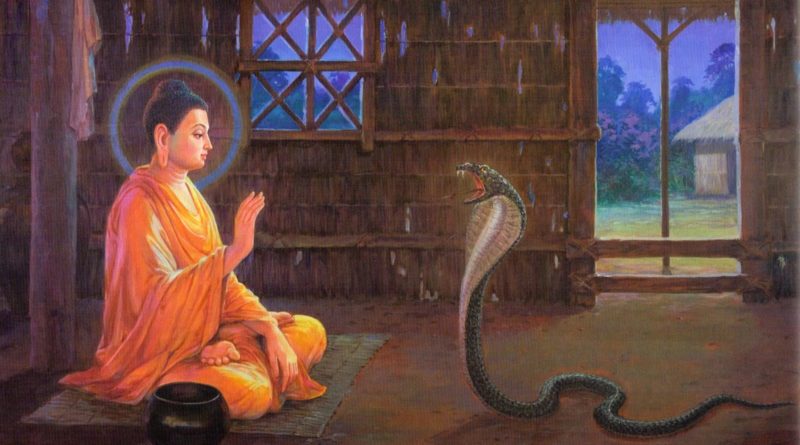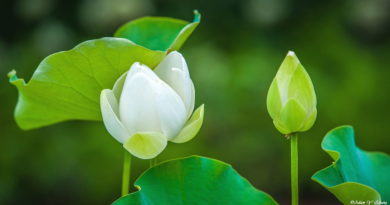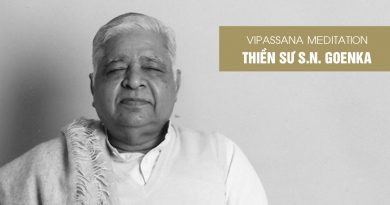Infinite Forbearance And Compassion Of The Buddha
MAIN CONTENT
- INCIDENTS FROM THE LIFE OF THE BUDDHA: Infinite Forbearance and Compassion of the Buddha
- Reproach by citizens of Magadha
- Reproach by Supriya Parivrājaka
- Reproach by Nigrodh Parivrājaka
- Reproach by Akroshaka Brahmin
- Reproach by Aggika Bhardwaja
- Reproach by Māganiya Parivrājaka
- Reproach by Singha Senapati
- Reproach by Ciñcā Maavika
- Reproach by Sundari Parivrajika –
- Sariputta was struck with a fist –
- Reproach by Ambaha Māava –
- Reproach by Māganiya –
INCIDENTS FROM THE LIFE OF THE BUDDHA: Infinite Forbearance and Compassion of the Buddha
The forbearance of the Buddha was like a Himalayan peak, which may face any number of storms and squalls, but always remains unshakable. His loving kindness and compassion were like an unfathomable ocean from which any quantity of water may be taken, without causing any deficiency in it. The Buddha faced many storms of blame and abuse during his lifetime, but his forbearance remained firm with no reduction in the boundless loving kindness towards these slanderers.
Reproach by citizens of Magadha
Seeing the Buddha’s monks, many citizens, reproached him by uttering such words…
“This Śramana is making the land of Magadh childless. He is making women widows. He is engaged in destroying the clan. He has just converted thousands of Jatil ascetics to be his disciples. After that, he took one thousand two hundred and fifty Parivrājakas into his fold. Now, even the sons of renowned families of Magadh are accepting his teachings.”
They also made such sarcastic remarks to the monks…
“This Maha-Shraman Gautam has arrived in Girivraj (Rajgriha) of Magadha. He has already made so many people his pupils. Who knows how many more will fall into his trap?”
When the Buddha heard such remarks from his monks, he said…
“Monks! You will not hear such sarcastic remarks for long. People will do so for a week, but afterwards, of their own accord, they will become quiet.
Reproach by Supriya Parivrājaka
The Buddha was once going from Rajgiri to Nalanda accompanied by some monks. At that time, Supriya Parivrajak and his disciple Brahmadatta Mānava, were also following him. All along the way, Supriya Parivrajak continued to speak in dispraise of the Buddha, Dhamma and Sangha but his disciple Brahmadatta Mānava kept on praising the Buddha, Dhamma and Sangha in various ways. At night, everyone stayed at the same place and throughout the whole night, both the teacher and disciple continued slandering and praising the Buddha, Dhamma and the Sangha in the same manner. Throughout the night, the disciples of the Buddha listened to their discussion without intervening. The Buddha appreciated it and said that one should never be happy when praised by others nor be agitated when reproached by others.
Reproach by Nigrodh Parivrājaka
While reproaching the Buddha, he said…
“Śramana Gautam has lost his sense by practicing meditation in the cell. His wisdom has degenerated. He will not be able to answer any of my questions”.
But when he actually met the Buddha and observed his peace and wisdom, he bowed his head.
Reproach by Akroshaka Brahmin
Fuming with rage he approached the Buddha and began to abuse him.
Hearing this, the Buddha said…
This type of abuse is like offering each other delicacies. I do not join you in this work. You have presented me with these gifts of abuse but this gift remains with you. I have neither accepted them nor have I presented any gifts of abuse to you in return. Your gifts remained with you alone.”
In spite of being ill-tempered, Akroshaka Bhardwaja was very wise. He immediately recognized that, day and night we keep on giving gifts of abuse to each other, yet here is a person, who does not accept such gifts. Instead, he keeps silent and, with forbearance, remains absolutely calm and peaceful. Seeing and understanding this, he became a devout disciple of the Buddha.
Reproach by Aggika Bhardwaja
While going from house to house seeking alms, the Buddha reached the house of Aggika Bhardwaja. On seeing him Aggika Bhardwaja, showed his contempt by yelling at him…
“You shaven head, stop there! You Śramana, stop there! You outcaste, stop there!” He did not want that the inauspicious shadow of any Vrishala (person belonging to the lowest caste) to fall on his house.
On hearing this, the Buddha explained to him who is an outcaste and what makes one an outcaste. After hearing this explanation from the compassionate Buddha and understanding the meaning of it, Brahmin Bhardwaja became his faithful disciple.
Reproach by Māganiya Parivrājaka
When he saw the seat used by the Buddha, Māganiya Parivrājaka remarked…
“Oh, It is very inauspicious that I saw this seat on which the Buddha sat because Śramana Gautam is the killer of fetus). Even in the face of such harsh words of abuse, the Buddha remained steady and unmoved.
Reproach by Singha Senapati
Once Singha Senapati cast aspersions on the Buddha saying that he did not possess any supernatural power. The Buddha explained that his teachings are not for exhibiting supernatural powers, but for complete liberation from suffering. By listening and properly understanding this, he became a devoted disciple of the Buddha.
Reproach by Ciñcā Maavika
Disguised as a pregnant woman, Ciñcā approached the Buddha in an assembly and began to reproach him.
“Listen to me, you great recluse, if you are not able to arrange for the birth of your child in my womb, ask any of your rich disciples to help.”
On hearing this false accusation, the Buddha said calmly…
“Sister, the truth or untruth of your statement is known to both of us.” Even after hearing this, Ciñcā kept on repeating her false accusation again and again. But observing no effect of her accusations on the Buddha, she was confused and the strings with which she had tied the piece of wood on her stomach became loose and fell down revealing the truth. The people present there reviled Ciñcā. But the Buddha remained calm and unruffled
Reproach by Sundari Parivrajika –
When the Buddha could not be defamed in any manner then his enemies played one more trick on him. They took Sundari Parivrajika to Jetavan and killed her in a secluded place. Then they carried her corpse in the city saying that the monks of the Buddha are not only immoral but also murderers. On this the Buddha instructed his monks to remain calm and said that this false allegation would not last for more than a week. It was exactly so as the Buddha had said. The monks maintained their calm and with the passage of time the truth came out.
Sariputta was struck with a fist –
It was well known that Sariputta could not be made angry by whatever was done to him. When this was heard by an adversary Brahmin, in order to test his forbearance he gave a blow with is fist with full strength on the back of Sariputta. At this, Sariputta was not angry at all. The Brahmin realized that he actually possessed great forbearance. Observing this, he sat at his feet with utmost humility and requested Sariputta to come to his house and accept the alms given by him.
Sariputta accepted the invitation and did accordingly. People were amazed to see that instead of being angry with a person who had assaulted him, Sariputta acceded to his request and went to his house to receive alms with a mind filled with compassion.
Reproach by Ambaha Māava –
Ambaha Māava went to the place where the Buddha was residing and reproached him with these words, “Gautam Buddha and his monks are not virtuous.” Reproaching the whole Shakya clan, he said, “They are of fierce and impetuous nature. They neither respect the Brahmans nor revere them. Therefore, they are sinners.” Thereafter, the Buddha explained to him very calmly who should be respected and who actually should be called sinners. Hearing this, Ambattha became quiet and humble.
Reproach by Māganiya –
Māganiya, the daughter of Māgandiya was very beautiful. His father was looking for a very handsome bridegroom for her. When he saw the Buddha he was very much impressed by his incomparable beauty. He saw a suitable bridegroom in him for his daughter. He called his wife there along with his daughter. Brahmin Māgandiya proposed that the Buddha should marry his daughter. The Buddha rejected it outright. When the Brahmin praised her beauty, the Buddha said – “How can I accept her as a wife? I cannot even touch her with my foot.” Thereafter, he explained the fact of attaining supreme Enlightenment. On hearing this, both Māgandiya and his wife took refuge in the Buddha and afterwards attained a state of full liberation.
Rejected by the Buddha, Magandiayaa’s heart was immensely hurt. Later because of her great beauty, she was married to King Udayan of Kosambi. She became the queen. But she could not forget the insult caused by the Buddha. Once, Gautam the Buddha, along with Ananda came to that town. When she saw them, she ordered her servants and workers to follow the Buddha and revile him with such abuses – “Śraman Gautam, you are a thief, a fool, an impudent, a camel. an ox, a donkey, an animal, a creature bound for hell! You are not to attain a happy birth. Only an awful state awaits you!”
They began to insult the Buddha with such derogatory remarks. Then Venerable Ananda suggested to the Buddha – “Bhante, these uncivilized citizens are calling you names. So, why should we not move to another town?” The Buddha replied – “In case, the people of that town also start calling us names, then where shall we go?”
The Buddha further explained – Anand, I am like an elephant fighting a battle. Just as the elephant has to bear arrows coming from all four directions, in the same way, it is my duty to tolerate abusive words uttered by many immoral people. As the praise is, so is the reproach. To remain equanimous in both the situations is the real Dhamma.
In his life time the Buddha was reproached in various ways on several occasions. But he was the ‘Buddha’. How could he become perturbed by these reproaches! His forbearance was unshakeable like the peak of the Himalayas. Only loving kindness flowed from his heart towards the people who criticized him. His loving kindness was like an unfathomable ocean.
Criticism came mostly from those people, who could not bear his fame and who did not like the spread of his teachings. Their intention was to defame the Buddha in whatever manner they could, so that his teachings could not spread further.
Apart from all these people Devadatta also vehemently criticized the Buddha because he was eager to occupy the prestigious place of the Buddha. But the Buddha had only loving kindness for him. Once he persuaded five hundred monks from the Sangha by spreading false rumors about the Buddha and his teachings and establishing his false supremacy. He desired to establish a new Sangha by causing a schism in the Sangha but he could not succeed in his wicked design.
Then he thought that the king of the country was a great devotee of the Buddha. So long as he was alive in spite of his umpteen efforts, the name and fame of the Buddha would not suffer. So, a wicked thought arose in his mind to overpower prince Ajatsatru and fulfill his wishes through him.
He did this. By exhibiting some miracles, he impressed Ajatsatru. Then he explained to him that “Your father Bimbisar will continue to live for long. As long as he is alive you cannot become a king and you cannot enjoy royal power. Therefore, kill him and usurp his throne.”
Ajatsatru was provoked to kill the king Bimbisar, his own father. But he failed in his attempt. The king felt compassionate for his son knowing that he had a burning desire to sit on the throne. So, he willingly relinquished the throne and made him the king of the country.
Devadatta was not satisfied even with this, because the public had absolute faith in Bimbisar although he was no longer a king. Although Ajatsatru could not kill him he got him locked up in jail in some conspiracy and killed him by keeping him hungry.
Devadatta was delighted. Why should I fear now when my disciple has become the king? So he made several attempts to kill the Buddha, but he failed every time. The Buddha remained immovable like the Himalayas towards his misdeeds. His loving-kindness towards him remained deep and profound.
These incidents are the shining examples of the two qualities of the Buddha.
Once Devadatta, with the help of the servants made the fierce elephant Nalagiri drink wine. He was trumpeting fiercely. Nalagiri was then left alone on the way the Buddha was going for begging alms. The accompanying monks requested him to take shelter in a nearby house but the Buddha remained absolutely unperturbed. The trumpeting elephant kept on coming near him. The Buddha showered compassion on him. As a result, not only his anger subsided but also he came near the Buddha, knelt down and began to salute him respectfully. The Buddha caressed his trunk with his hand with infinite loving–kindness, filling Nalagiri’s heart with joy and ecstasy. On his way back, he did not turn his back, but returned looking at the face of the Buddha.
Such was the steadfast forbearance of the Buddha and such was his profound loving kindness!
We should learn lesson and draw inspiration from the above incidents in the life of the Buddha. If one criticizes us and if there is truth in it then we should rectify ourselves immediately. Otherwise we should remain unshaken even if there is severe criticism and feel boundless loving kindness for the critics.
The Dhamma teachers of today and tomorrow should bear in mind that if a Devadatta does some mischief to retain his position or to get the position he has not got they should not become disturbed but they should remain unshaken. Meditators also should remain undisturbed. Neither should they be frightened by the state power nor should they go astray becoming influenced by some rich person. Let them have forbearance and patience and let them have loving kindness for him.
This is the message of the Dhamma. This is to be done. In this lies the happiness of all! In this lies the welfare of all!!






